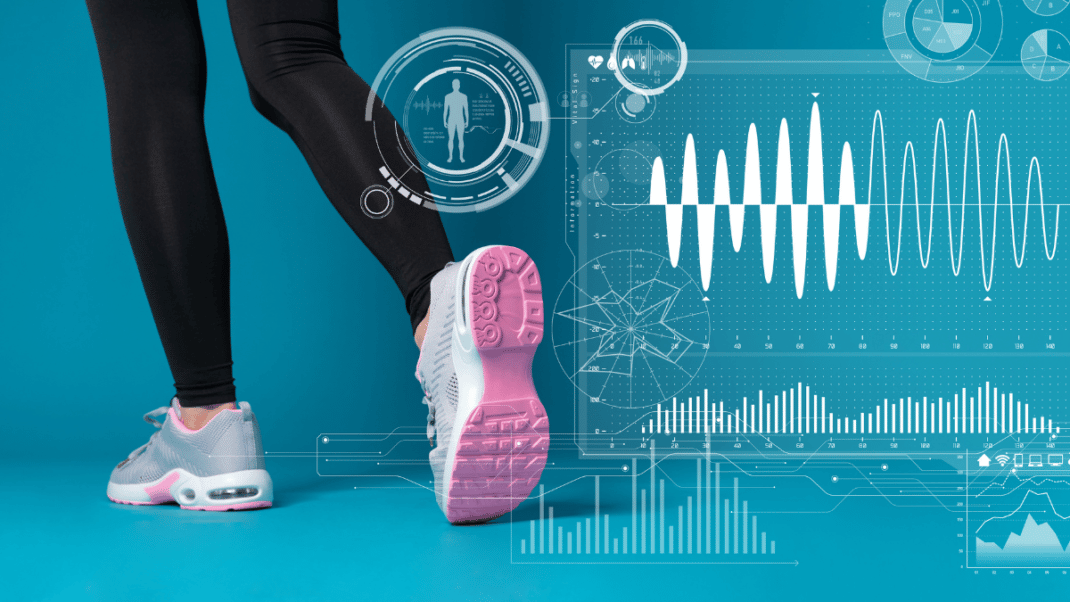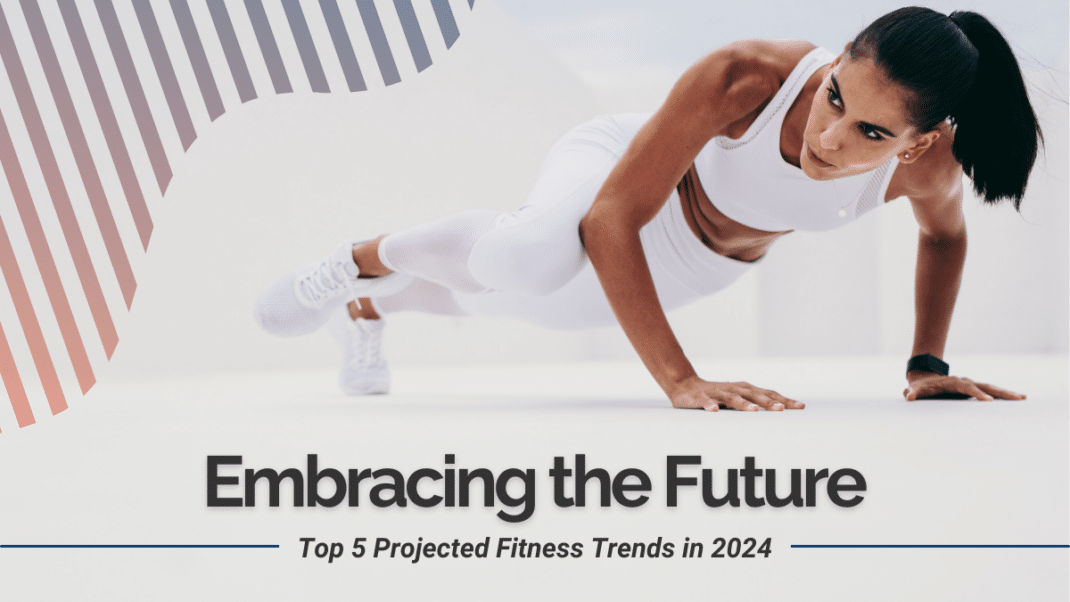Is AI Reliable for Use by Fitness Professionals?
Will the technology help or hinder the industry?

Artificial intelligence (AI) has transformed industries worldwide, and the fitness sector is no exception. With the rise of AI-driven apps, wearable fitness trackers, and data analytics tools, fitness professionals have more technological support than ever. However, as AI continues to shape workout programming, nutrition guidance, and client engagement, the question remains: Can fitness professionals rely on AI to enhance their work, or does it come with limitations?
AI can be a useful tool, providing a springboard for brainstorming or collating ideas. However, reliance on this tool could degrade your services as a fitness professional, if you are not careful. AI is not always correct and results are not in your voice. Read on to learn more about how has impacted the fitness industry.

The Role of AI in Fitness
AI-powered fitness technology is designed to streamline processes, improve personalization, and provide data-driven insights. Some of the most common applications of AI in the fitness industry include:
- Personalized Workout Plans: AI can analyze user data, such as age, fitness level, and goals, to generate customized training programs. Apps provide adaptive workouts that evolve based on user feedback and performance. This AI ability would be a good resource for a generic workout that could be assigned as a home workout, for just about anyone. However, the time it would take to feed every bit of info you know about your client in order to receive a truly personalized workout, is longer than it would take you to just program the workout yourself
- Virtual Coaching & Chatbots: AI-powered chatbots and virtual trainers provide instant feedback, answering common fitness-related queries and keeping users accountable. As a tool for accountability or when you are not available, virtual coaching by AI, a fitness app or wearable fit tech would be an efficient way to increase compliance outside the gym
- Form & Performance Analysis: AI-driven platforms analyze movement patterns through motion-tracking technology to provide real-time feedback on form and technique. Many people hire a trainer to ensure they are exercising properly. Some of the more sophisticated platforms can analyze form in real time, supporting any instructions you may have provided.
- Predictive Analytics: AI can assess historical training data to predict potential injuries, recommend optimal rest periods, and suggest progressive overload adjustments for better performance gains. Again, as a boost to compliance, this tool would remind clients of the program you’ve provided.
- Diet & Nutrition Guidance: AI-driven meal planning tools can offer personalized nutrition recommendations based on dietary preferences, health goals, and biometric data. Nutrition is one of the harder areas to tackle with a client. Dietary non-compliance is very common. Having the reminders and meal planning tools at their finger tips will assist clients in reaching goals faster.

The Benefits of AI in Fitness Training
AI’s integration into the fitness industry has introduced significant benefits that can enhance both client results and professional efficiency:
Efficiency & Scalability: AI helps fitness professionals manage multiple clients by automating workout programming and progress tracking, saving time for trainers and coaches. Being successful in the fitness industry means you are busy! Keeping track of clients can be daunting. Organizing your client base on an app can make tracking simpler.
Data-Driven Decision Making: AI tools provide valuable insights based on real-time data, enabling trainers to make informed recommendations for clients. Not only can you make more detailed recommendations to clients, but you can more easily see trends between clients. This data could enable you to streamline recommendations or arrange group trainings as appropriate.
Enhanced Client Engagement: AI-powered tools, such as gamification and progress-tracking apps, keep clients engaged and motivated.
Accessibility & Affordability: AI democratizes fitness by making professional-level guidance accessible to people who may not be able to afford personal trainers. AI and other fitness apps can feel threatening to fitness professionals. But jump on the bandwagon by offering services through an app. It will be less hands on time for you and a lower price point for the client.
24/7 Support: Virtual AI trainers can provide round-the-clock support, answering questions and keeping clients accountable between sessions.

Limitations & Concerns
Despite its advantages, AI is not without its limitations. Fitness professionals should be aware of the following challenges:
- Lack of Human Intuition: AI lacks the emotional intelligence and human touch that personal trainers provide. While it can analyze data, it may struggle to interpret subtle client cues such as motivation levels, stress, or fatigue. This is probably the biggest down side to AI – it’s not real. It can’t empathize, it can’t sympathize and it certainly can’t take emotional cues into consideration.
- Data Privacy & Security: The increasing reliance on AI means handling sensitive health and fitness data. Ensuring data security and compliance with privacy laws is crucial. Be very careful feeding information into an AI tool. Keep the information generic and non-identifying.
- Generic Recommendations: While AI can generate workouts based on algorithms, it may not account for unique conditions such as injuries, medical conditions, or personal preferences as effectively as a human trainer.
- Dependence on Technology: Overreliance on AI-driven fitness solutions could result in trainers and clients losing the ability to think critically about training and nutrition beyond what an algorithm suggests. This is probably my biggest pet peeve around AI! Fitness professionals are PROFESSIONALS and need to bring an expertise, knowledge, experience and willingness to continue learning to their career.
- Potential for Misinformation: Not all AI-generated fitness advice is backed by science. Professionals must validate AI recommendations to ensure they align with evidence-based practices.
The Future of AI in Fitness
AI is still evolving, and its role in fitness is expected to grow as machine learning models improve. The future may include more advanced virtual coaching, real-time biometric monitoring, and AI-driven injury prevention solutions.
For fitness professionals, AI should be seen as a tool rather than a replacement. The key is to use AI to enhance their expertise while maintaining the human connection that makes personal training so valuable. Trainers and coaches who integrate AI thoughtfully can improve efficiency, enhance client results, and stay ahead in an increasingly tech-driven industry.
By combining AI tools with their own expertise, fitness professionals can provide a well-rounded, effective, and engaging fitness experience for their clients. The key lies in balance—leveraging AI where it excels while preserving the irreplaceable value of human guidance in fitness.
References
https://www.garagegymreviews.com/best-workout-appshttps://kodytechnolab.com/blog/ai-in-fitness-industry/https://www.riskaware.co.uk/insight/how-ai-is-changing-the-nature-of-health-fitness-wearables/https://www.nature.com/articles/s41598-024-65438-xhttps://www.fitlegally.com/blogs/news/client-confidentiality-and-the-fitness-industry





